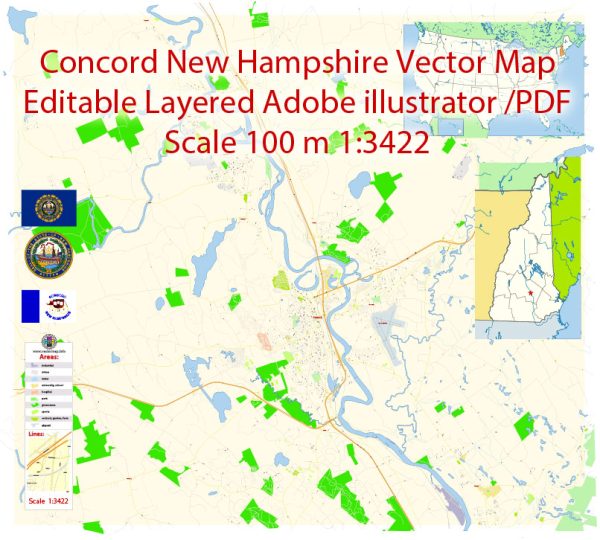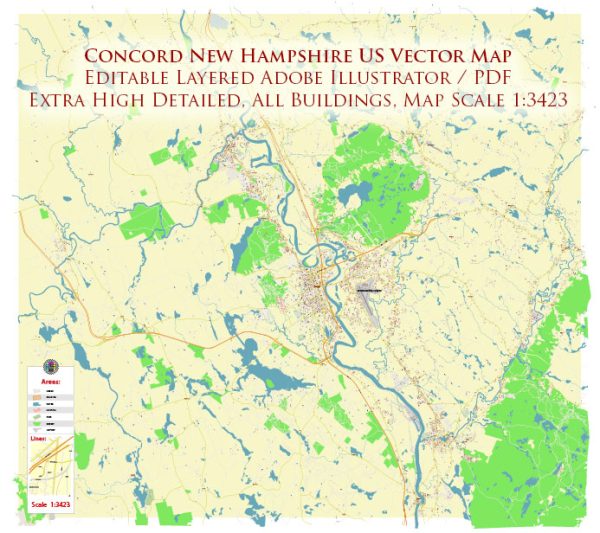Concord, the capital city of New Hampshire, has a rich history of urban development that reflects the broader trends and changes in American society. The city’s development can be traced through various stages, from its early settlement to its growth as a political and economic hub.
- Colonial Era (1725-1775): Concord was first settled in the early 1720s and officially incorporated in 1733. The city’s initial development centered around agriculture, with farms and small businesses emerging along the Merrimack River. The Old North Cemetery, established in 1730, is a testament to this early period.
- American Revolution and Early 19th Century (1775-1830): Concord played a significant role in the American Revolution, hosting the state’s ratification convention for the U.S. Constitution in 1788. The early 19th century saw increased industrialization along the riverbanks, with the construction of mills and factories. The advent of the railroad in the 1840s further connected Concord to regional and national markets, spurring economic growth.
- Civil War and Industrialization (1860-1900): The Civil War brought economic challenges but also stimulated industrial growth. The 1860s to the early 1900s marked a period of expansion, with the cityscape evolving to accommodate new industries, including textile mills and machine shops. The State House, completed in 1819, remains a prominent architectural symbol of this era.
- 20th Century (1900-2000): Concord continued to modernize in the early 20th century. The city experienced growth in population and infrastructure, with the expansion of schools, hospitals, and cultural institutions. The mid-20th century brought challenges common to many American cities, including suburbanization and the decline of traditional industries. However, Concord adapted and diversified its economy.
- Contemporary Era (2000-Present): In recent decades, Concord has focused on preserving its historic character while embracing modern developments. The revitalization of the downtown area, with efforts to promote local businesses and enhance public spaces, reflects a commitment to balancing economic progress with a sense of community and history.
Throughout its history, Concord has retained its role as the political center of New Hampshire, hosting the state government and institutions such as the New Hampshire Historical Society. The city’s commitment to preserving its historical assets, coupled with strategic urban planning, has allowed it to evolve into a vibrant and diverse community while maintaining a strong connection to its past.



 Author: Kirill Shrayber, Ph.D. FRGS
Author: Kirill Shrayber, Ph.D. FRGS